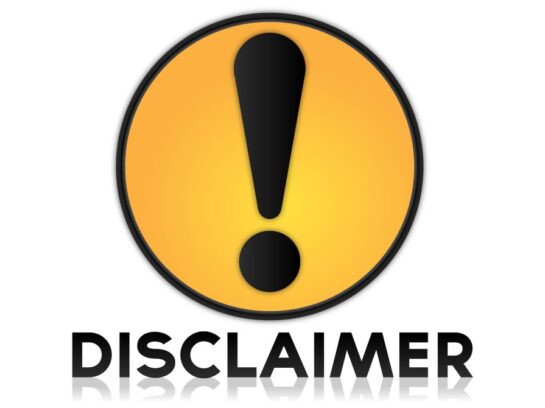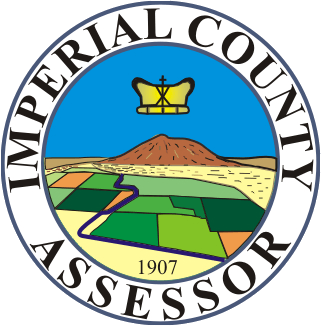About The Assessor
Robert Menvielle
Is the 11th person to serve as Assessor of the Imperial County. He is a lifelong Imperial Valley resident, who has been serving the public for the past 28 years as a property tax appraiser and now as County Assessor. He worked as a real property appraiser for three previous Assessors before being elected Assessor in November 2014 and then re-elected to a second term in June 2018.
He grew up on a farm, east of Calexico and worked in the family farming operation and in local agri-business operations prior to joining the Assessor’s Office in 1992. He is a graduate of Calexico High School, Imperial Valley College and California State Polytechnic University, Pomona with a degree in Agricultural Business Management. As County Assessor.
Robert Menvielle is a dedicated public servant who is committed to being fair, honest and accessible to the public as he carries out the complex process of assessing the various properties in Imperial County.
In his two terms as County Assessor, he has been able to improve the efficiency of the department and increase staff productivity while maintaining an extraordinarily high level of customer service through innovation, staff training, and the use of affordable technology.
As Imperial County Assessor, Robert Menvielle is dedicated to being fair, honest and accessible as he carries out the complex process of assessing the various properties in Imperial County. He is committed to improving the efficiency of the Assessors Office through the increased use of technology and by enhancing staff training. He is a dedicated public servant who intends to make excellence in public service the standard for the citizens of Imperial County.
To discover and assess property for tax purposes in accordance with California property tax law. To properly apply all legal exclusions and exemption. To ensure that property is assessed accurately, fairly and timely. To serve the public in a competent and professional manner.

To increase efficiency and improve productivity through innovation, training and the use of technology. To improve customer service and provide easy access to public information. To serve the business and property owners of Imperial County in a professional and courteous manner.
To uphold and protect the public trust through extraordinary public service, careful stewardship of public funds, transparency, innovation, collaboration and by providing effective leadership in local government.

Important Dates
January 1:
The lien date for the assessment of property on the assessment roll is 12:01 AM on January 1 of each year. It is the time when taxes for the following fiscal year (July 1 june 30) becomes a lien on property.
January 2:
First day to file property statement with assessor if required or requested. Taxes on the unsecured roll are due.
First day to file affidavit and claim for exemption with the assessor, but on or before 5 p.m. on February 15.
First day to file affidavit for classification as documented vessel, but on or before 5 p.m. on February 15.
January 15:
Owners and operators of private and public airports must furnish county assessor with a statement listing names and addresses of owners of all aircraft using the airport as base.
February 1:
Mobile home parks must report to assessor information regarding ownership interests if park does not use deeds to transfer ownership. Second installment of real property taxes are due and payable.
February 15:
Deadline for filing Veterans, Homeowners, Church, Religious, Welfare Exemptions, Historical Aircraft and other institutional exemptions.
April 1:
Business Property Statements are due.
April 10:
Second installment of taxes on the secured roll, if unpaid, is delinquent at 5:00 p.m., or close of business day, whichever is later.
May 7:
May 7th is the last day to file Business Property Statement and Aircraft Property Statement before a 10% penalty is added , or the next business day if the date falls on a holiday or weekend.
Failure to complete and file the Business Property and Aircraft Property Statement will result in the Assessor estimating the value of your business property. (Revenue & Taxation Code Sections 441, 463 & 501).
May 31:
Last day to amend timely filed property sstatement for errors or omissions.
July 1:
The assessor completes the assessment roll and delivers to auditor.
July 2:
First day for property owners to file an application for reduction of assessment made in the regular assessment period. Other filing periods apply for supplemental assessments and escape assessments. The last day for filing this application is November 30.
August1:
Last day for historical aircraft owners to file late affidavit and claim for exemption under 220.5 of the Rev. & Tax. Code.
August 31:
Taxes on property on unsecured roll as of July 31 at 5:00 p.m. delinquent if unpaid.
November 1:
First installment of real property taxes and all taxes on personal property on the secured roll are due and payable.
November 30:
Last day to file application for reduction of assessment made in regular period if assessor does not provide notice of assessed value by August 1.
December 10:
Last day for Homeowners, veterans, and disabled veterans to file late affidavit and claim for exemption with the assessor.
First installment of taxes on the secured roll, if unpaid, is delinquent at 5:00 p.m. or close of business day, whichever is later.
Last day to terminate homeowners' exemption.
Last day to terminate religious exemption without penalty.
Assessor Terminology
The point of using dummy text for your paragraph is that it has a more-or-less normal distribution of letters. making it look like readable English.
Ad Valorem Property Tax: Taxes imposed on the basis of the property's value.
Assessed Value: The taxable value of a property against which the tax rate is applied.
Assessee: The person to whom the property is being assessed.
Assessment Appeal: The assessee may file an appeal for reduction of assessed value on the current local roll during the regular filing period for that year, between July 2 and November 30 with the Clerk of the Board of Supervisors. For supplemental or escape assessments, appeals must be filed within 60 days of the date of the notice.
Assessment Appeals Board: A three-member panel appointed by the Board of Supervisors, operating under state law, to review and adjust assessments upon request of a taxpayer or his or her agent. (See assessment appeal).
Assessment Roll: The official list of all property within the county assessed by the Assessor.
Assessment Roll Year: The year following the annual lien date and the regular assessment of property beginning on July 1.
Base Year value: Proposition 13 establishes the 1975-76 regular roll value as the original base year value. Thereafter, new construction or a change in ownership to the subject real property will create a new base year for such property.
Basic Aid: Basic aid school districts rely principally on locally derived property tax revenues to fund school operations, rather than on Statewide reallocation formulas based on average daily attendance and other factors. School districts become "basic aid" when the projected level of revenue provided by local property taxes exceeds the state formula.
Business Personal Property: Business personal property is assessable and includes computers, supplies, office furniture and equipment , tooling machinery and equipment. Most business inventory is exempt. (see personal property)
Change In Ownership: When a transfer of ownership in Real Property occurs, the Assessor determines if a reappraisal is required under state law. If required, the reappraised value becomes the new base value of the property transferred, and a supplemental assessment is enrolled.
Consumer Price Index(CPI): The Consumer Price Index as determined annually by the California Bureau of Labor Statistics.
Escaped Assessment: When property that should have been assessed in a prior year is belatedly discovered and assessed, it is referred to as an "escape assessment" because it is an assessment that levied outside the normal assessment period for the lien date(s) in question.
Exclusion From Reapraisal: Some changes in ownership may be excluded from reappraisal if a timely claim is filed with the Assessor's Office that meets the state qualifications. Examples include the transfer of real property between a parent and child or senior citizens over age 55 who has replaced their principal residence.
Exemption: Allowance of a deduction from the taxable assessed value of the property as prescribed by law.
Homeowners Exemption: Taxpayers who own and occupy a dwelling on the lien date as their principal place of residence are eligible to receive an exemption of up to $7,000 of the dwelling's taxable value. The tax dollars reduced by the homeowner's exemption are returned to the County by the State of California.
Other Exemptions: Charitable, hospital, religious or scientific organizations, colleges, museums, cemeteries, and disabled Veterans (for 100%, service connected disabled Veterans) are eligible for exemption.
Factored Base Year Value: A property's base value is adjusted each year by the change in the California Consumer Price Index (CPI), not to exceed 2 percent. The factored base value is the upper limit of taxable value each year.
Fiscal Year: The period beginning July 1 and ending June 30.
Fixture: An improvement to real property whose purpose directly applies to or augments the process or function of a trade, industry or profession. It is an improvement that once was personal property but because of the use and manner of attachment to the real property it has become a fixture.
Full Cash Value(FCV): The amount of cash or its equivalent value which property would bring if exposed for sale in the open market and as further defined in Revenue and Taxation Code 110.1.
Improvements: Buildings or structures generally attached to t
Lien: The amount owed and created by the assessment of the property, or the amount levied against property by a taxing agency or revenue district.
Lien Date: The time when taxes for any fiscal year become a lien on property; and the time as of which property is valued for tax purposes. The lien date for California property is 12:01 a.m. on January 1.
Mobile Homes: On July 1, 1980 the Department of Motor Vehicles transferred all mobile home licensing and registration to the California Department of Housing and Community Development (HCD). The law requires that mobile homes be classified as personal property and enrolled on the secured roll. This means that all mobile homes built new from July 1, 1980 to current are picked up and assessed by the County Assessor. All Mobile homes built prior to this date are licensed.
New Construction: The construction of new buildings, additions to existing buildings, or alterations which convert the property to another use or extends the economic life of the improvement, is reassessed establishing a new base year value for only that portion of the property.
Parcel: Real property assessment unit. Land that is segregated into units by boundary lines for assessment purposes.
Personal Property: Any property except real estate, including airplanes, boats, and business property such as computers, supplies, furniture, machinery and equipment. Most business inventory, household furnishings, personal effects, and pets are exempt from taxation.
Possessory Interest(PI): The right a taxable person or entity has in a tax exempt public owned property. Examples of PI's are, a person has a lease on IID land for farming. A farmer leases 80 acres of Indian reservation land for farming. A car rental agency leases office space at the county airport.
Proposition 13: Passed by California voters in June, 1978. Proposition 13 is a Constitutional Amendment that limits the taxation of property and creates a procedure for establishing the current taxable value of locally assessed real property, referencing a base year full cash value.
Proposition 8: Passed by California voters in November 1978, Proposition 8 requires the temporary reduction in the assessed value when there is a decline in market value below the property's factored base year value.
Real Property: Land and Improvements to the land, which permits the possession of, claim to ownership of, or right to possess.
Revenue and Taxation Code of the State of California (R & T): Codified Laws that define and explain the application of Proposition 13 for the entire state.
Roll: A listing of all assessed property within the county, It identifies properties, the owner, and the assessed value of the property.
Roll Unit: A parcel of property or a business personal property account that is a part of the Assessors Roll.
Secured Roll: Property on which the property taxes are a lien against the real estate.
Special Assessment: Direct charges or flat fees against property which are included in the total tax bill but are not based upon the Assessor's valuation of the property. Examples are a sewer charge or a school parcel tax.
State Board Of Equalization(SBE): The Board consists of four members elected by California voters by district, and the State Controller whose duties in the field of taxation are imposed by the State Constitution and the Legislature. The Board regulates county assessment practices and administers a variety of state and local business tax programs.
Supplemental Assessement: When property is assessed due to a change in ownership or completed new construction, a supplemental assessment is issued. This is separate and in addition to the annual regular assessment roll. It is based on the net difference between the previous assessed values and the new value for the remainder of the assessment year(s). It is a pro-ration of your tax bill for the remainder of the assessment year (s).
Supplemental Roll: The roll, prepared or amended, contains properties in which a change in ownership or completed new construction occurred.
Tax Bill: The Assessor does not create the property tax bill. The bill is a creation by the Auditor/Controllers office, based on the property assessment and then collected by the Tax Collector.
Tax Rates: The maximum ad valorem basic property tax rate is 1 percent of the net taxable value of the property. The total tax rate may be higher for various properties because of voter-approved general obligation bonds that are secured by property taxes for the annual payment of principle and interest.
Tax Roll: This is the official list of property subject to property tax, together with the amount of assessed value and the amount of taxes due, as applied and extended by the County Auditor/Controller.
Tax Rate Area(TRA): Tax Rate Area is a specific geographic area all of which is within the jurisdiction of the same combination of local agencies for the current fiscal year. Each TRA will be identified by a unique number.
Transfer: Change in the ownership of, or change in the manner which property is held. Depending on the specific situation , a transfer may trigger or may not trigger a re-assessable event.
Unsecured Roll: Property on which the property taxes are not a lien against the real estate where they are situated, including personal property or improvements that are located on leased land.
Holidays 2024

New Year's Day
Thursday January 1
Martin Luther King Jr.
Monday January 19
Presidents' Day
Monday February 16
Cesar Chavez Birthday
Tuesday March 31
Good Friday
Friday April 3
Memorial Day
Monday May 25
Independence Day
Friday July 3
Labor Day
Monday September 7
Veterans' Day
Wednesday November 11
Thanksgiving Day
Thursday November 26
After Thanksgiving Day
Friday November 27
Christmas Holiday
Friday December 25th (Obs.)
New Years Day
Friday January 1th (Obs.)
Disclaimer
The Imperial County Assessor "use codes" are internal Assessor's Office codes that are valid for Assessor use only. These codes are discretionary and are not required by California tax law. The Assessor is not required to supply these codes to any other agency. The information contained in these codes is not designed for use by any other agency, group, or individual. The Imperial County Assessor does not guarantee the accuracy of this information and takes no responsibility for the use of these codes by other organizations. The Imperial County Assessor cautions other agencies that these codes are not guaranteed to be applicable for non-Assessor use. The Imperial County Assessor is not liable for erroneous or incomplete data.
The information contained in the following web pages was valid at the time of publication. The Imperial County reserves the right to make changes and improvements at any time and without notice, and assumes no liability for damages incurred directly or indirectly as a result of errors, omissions or discrepancies.


